What have previously been collectables for some are soon to be history as more and more hotel businesses join the global war against single-use plastics.
First, it was the dreaded plastic straws, stirrers and drink picks that were scrapped in many hotels circa 2018 and now it’s long-time luxe love… the ‘mini bottles’ that are getting the boot as the hotel industry looks to soften its environmental footprint yet further.
With 20 brands and 875 properties around the world, Hyatt Hotels is the latest international hotel chain to join its mainstream competitors in ridding itself of single-use plastic toiletries.
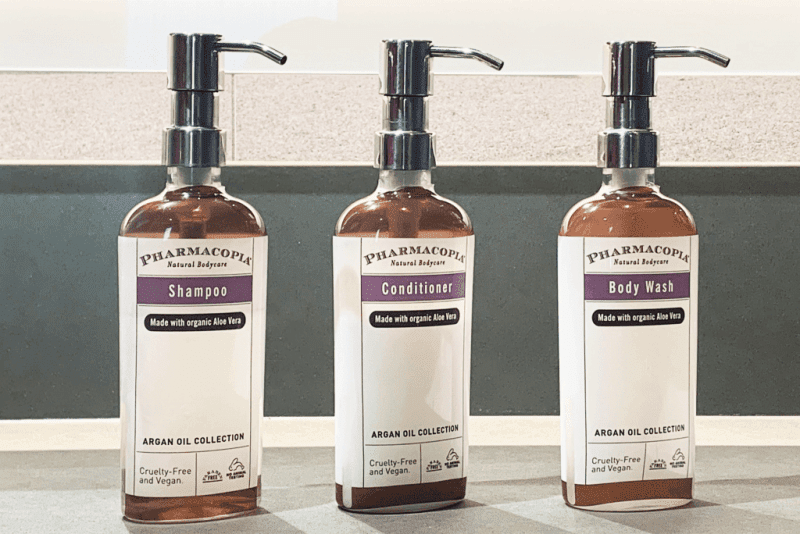
The Chicago based company has announced that it will replace individual bottles of shampoo, conditioner, shower gel, soaps and lotion with larger refillable bathroom amenities, following similar moves by Marriott International and InterContinental Hotels Group in the last year.
Hyatt says they will also inhibit the use of single-use plastic bottles of water by increasing the number of drinking fountain-type water stations in public areas for guests to refill reusable containers or in carafes for meetings and events.
The initiatives will be introduced as soon as possible at properties around the world and will be applied company-wide no later than June 2021.
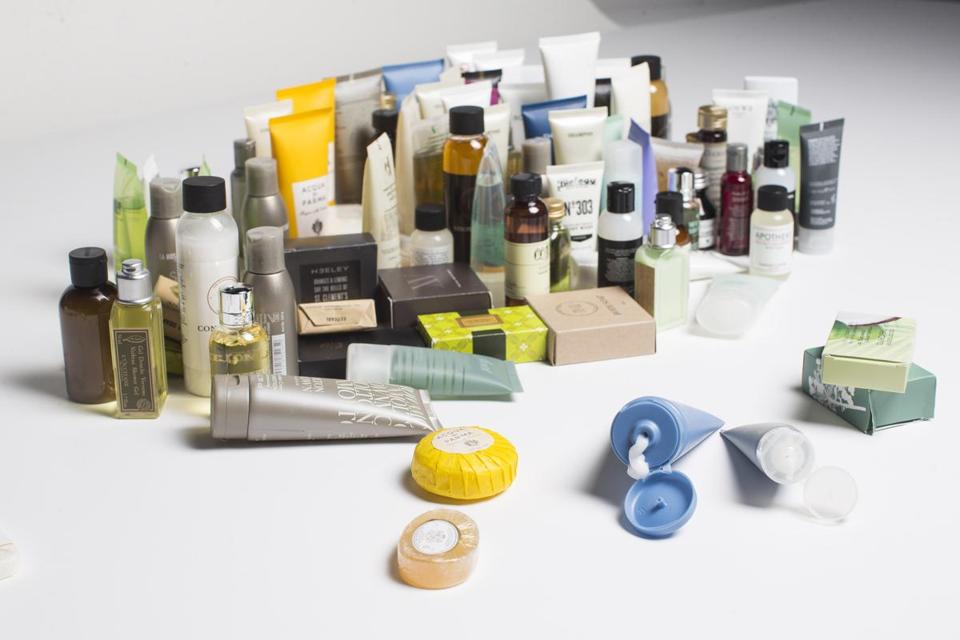
What’s the challenge?
Obviously, it’s no secret nor surprise that the world has a serious problem and addiction with plastic: Globally, almost 300 million tons of plastic are still produced annually, half of which is single-use.
Research shows that up to 95% of the plastic used in your hotel room ends up as landfill where it sits for hundreds of years. The top 300 hotel groups in the world alone dispose of an estimated 5.5 billion amenity bottles and caps every year.
Of that, more than eight million tons of that plastic is dumped into the ocean, according to the Plastic Oceans Foundation.
All of the ‘climate crisis conversation’ noise has swiftly changed traveller’s habits and desires with premium travellers especially switching off to properties that aren’t doing the right thing in terms of a waste reduction and responsible operational strategy.
Not only is this becoming an environmental issue but one that is a commercial reality for the hotel and travel industry at large. Travellers are choosing where to stay based on their personal ethical alignment.
But while many people are done with single-use plastics full stop, for some, the lure of cute miniature bottles that often end up going home with guests will still be a hard habit to break.
Issues around ‘germs’ on dispensers as well as taking away the ‘premium’ feel of getting free stuff during stays has also been cited as a barrier to change, but really? They said the same things about banning smoking in public places and people soon got over that.
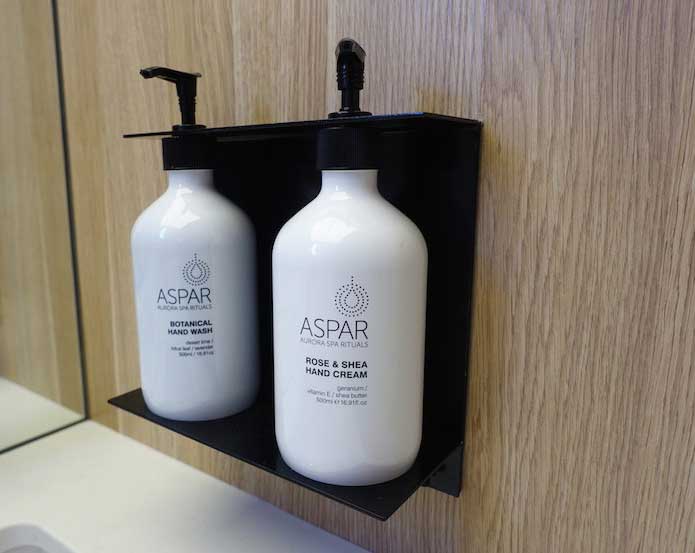
What’s the solution?
Hyatt Hotels latest announcement follows a number of other hotel chains including the world’s largest, the Marriott Group who said in August 2019 that it will replace small plastic bottles of toiletries with large containers or wall-mounted dispensers by December 2020 and also offer guests the option to refill reusable water bottles.
IHG® (InterContinental Hotels Group) also announced that its entire hotel estate of almost 843,000 guest rooms will switch to bulk-size bathroom amenities, with the transition to be completed during 2021.
In recent years, many of the world’s coolest and most luxurious hotels have integrated stylish design with beautiful organic liquids formulated with natural ingredients that are totally biodegradable and safe to the environment including shampoos, conditioners and body wash.
Owning and operating four resorts in the Maldives and one in Thailand, Soneva has been at the forefront of the sustainable luxury hospitality movement for over two decades.
From banning single-use plastic at its resorts back in 1998, becoming carbon neutral, to waste management and recycling initiatives, Soneva has always tried to find new ways to reduce its impact on the environment and help local communities in the process.
Soneva also raises around USD 90,000 every year from the Soneva Drinking Water proceeds and has funded over 500 clean water projects in more than 50 countries via charities such as Water Charity and Thirst Aid – enabling over 750,000 people around the world to have access to clean and safe water.
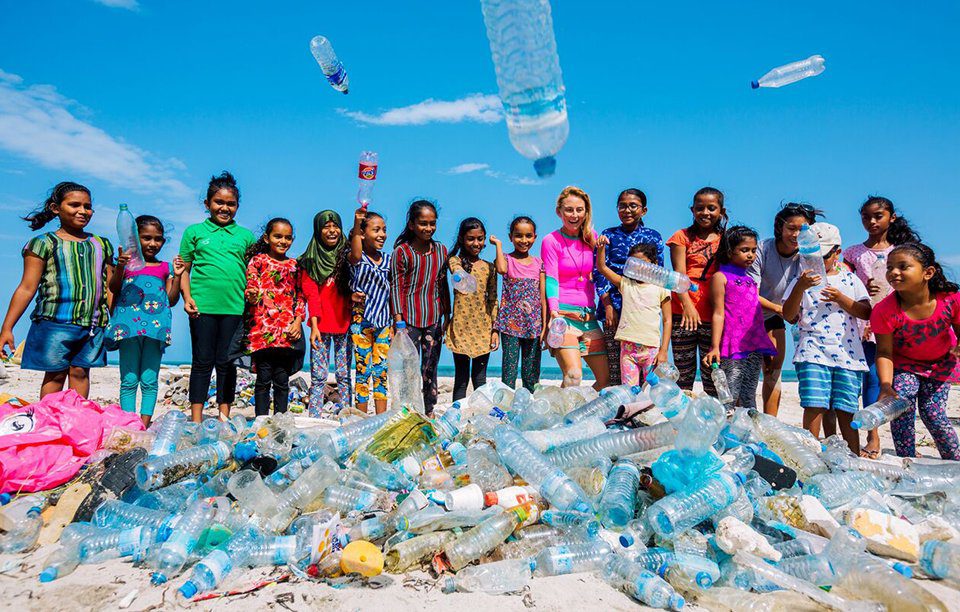
What will the positive impact be?
There’s no doubt that large scale hotel businesses ditching single-use plastic will have a significant effect on local environments and infrastructure.
The Marriott Group’s stance alone, for example, will prevent about 500 million of the tiny plastic bottles from reaching landfills yearly. That’s equivalent to about 770 tonnes of plastic annually and 30 per cent of its current plastic use for amenities. That’s a huge step in the right direction.
But while many major hotel chains announce measures to reduce their plastic use, the industry as a whole can still do much more and has a long way to go.
Greenview’s Green Lodging Trends Report 2018 surveyed 4,544 hotels in 61 countries and found that just 30.7 per cent of them reported that they had eliminated or reduced to an absolute minimum their use of single-use plastic.
Another 38.1 per cent said they were making progress in doing so, but only 14.4 per cent said they would accomplish it within a year.
In California, hotel companies won’t have a choice from 2023. Small plastic shampoo bottles will disappear from hotels as part of the state’s bold banning of all single-use plastics.
The law will take effect for hotels with more than 50 rooms and in 2024 for hotels with less than 50 rooms. Fines for violations could be as high as US$2,000.
The bottom line here as with all environmental policies is that the more hotel businesses that remove single-use plastics across their operations, the more normal it becomes for everyone.
And the more obvious it becomes of those hotels that aren’t making positive change and doing the right thing.
Where would you rather stay?
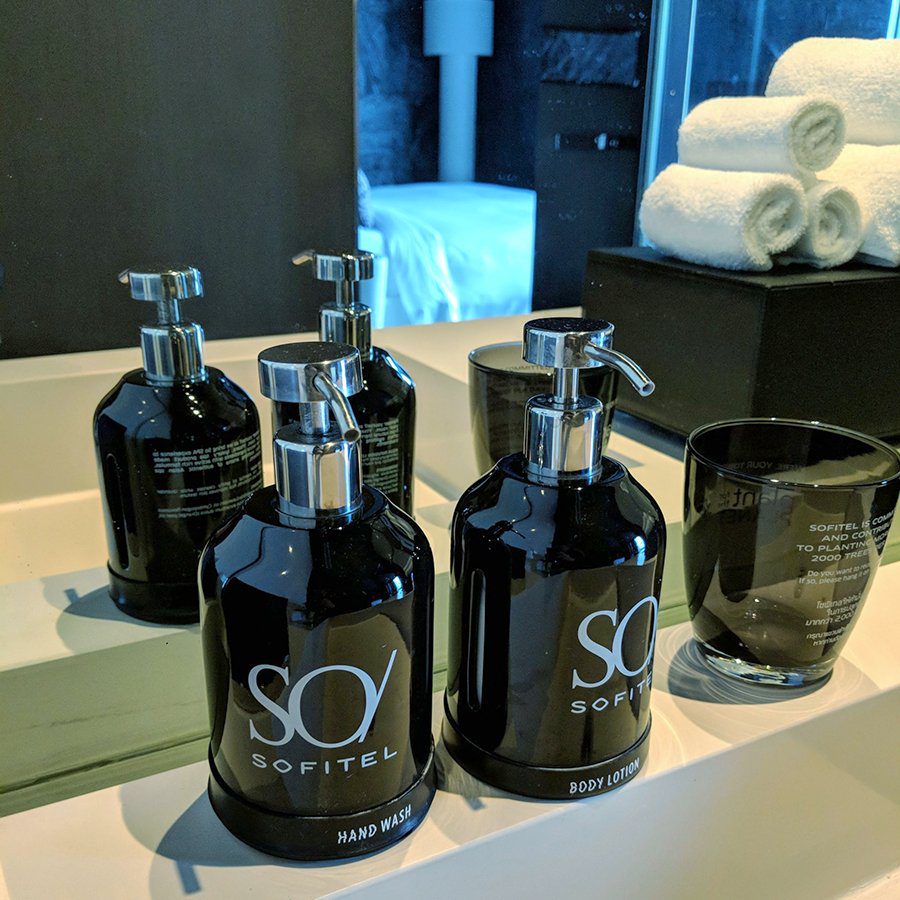
How can you travel to change the world?
Congratulations! By reading this post and taking some of these insights on board, you’ve already made a difference.
Now you can easily create your impact by sharing your new-found knowledge with other friends who you think would also be interested.
Ultimately, responsible travel comes down to common sense – stay curious, keep yourself up-to-date with the challenges at hand and make yourself accountable for your actions on your travels.